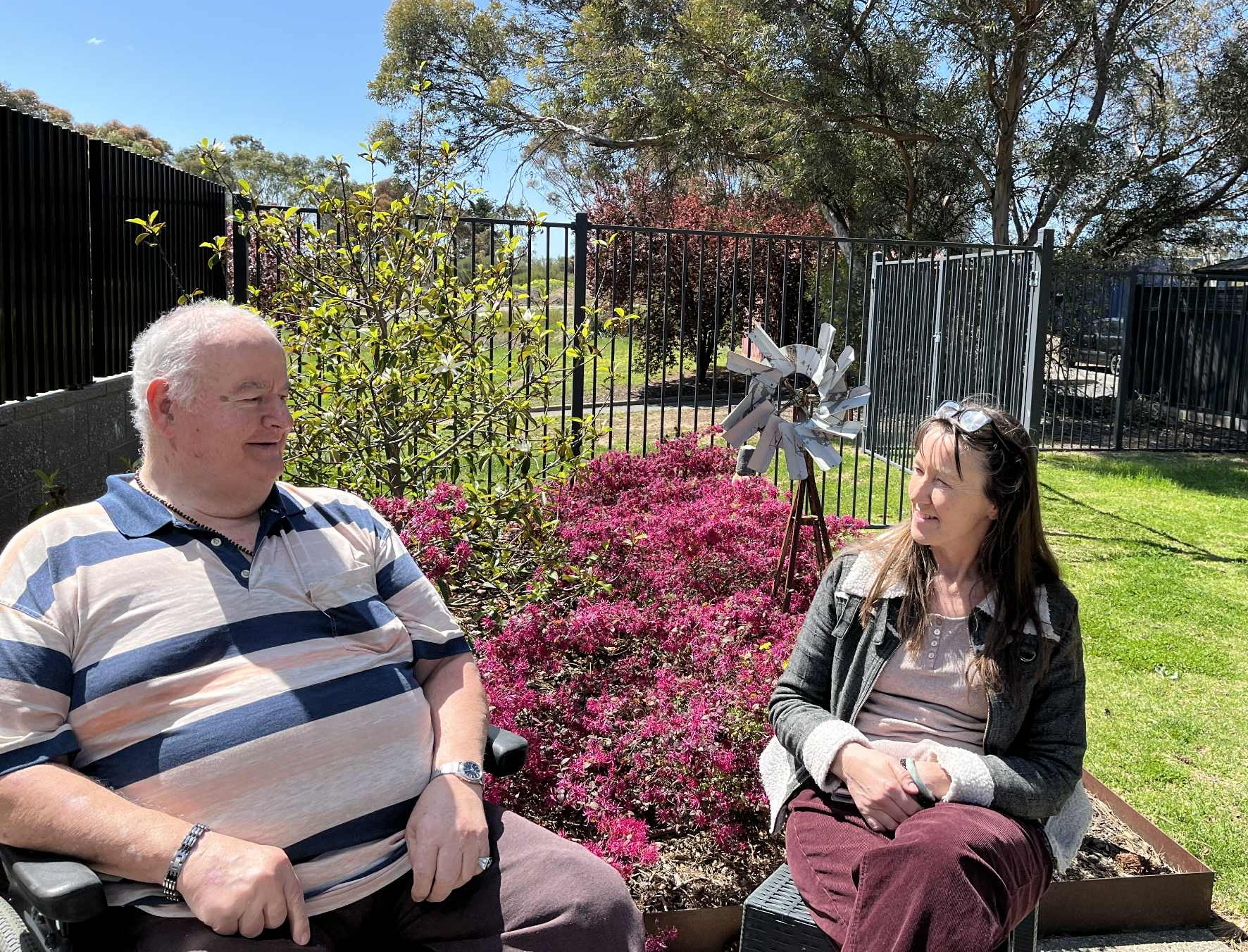For Gabrielle Canfield there’s one thing that doesn’t age: the need for help.
The mental health clinician has spread her focus and talents across a number of different teams in her time at Bendigo Community Health Services (BCHS) including residential withdrawal service Nova House, generalist counselling, Wanyanimbik Wayawan Wellbeing Centre as a dual diagnosis nursing consultant and Culturally Sensitive Counselling. Right now, she’s back in the generalist counselling team for a project she holds dear – delivering counselling services in residential aged care facilities.
“It’s one of my loves, working in the older persons care side of things,” she says. “I’m proud to help deliver this initiative, especially given the research into older person emotional and psychological health around the prevalence of anxiety, depression, grief and loss as they transition to the next stage of their life.
“These are individuals who have gone before us, who have shaped our life and community – some have worked in government advocating for child care and equal pay or volunteered at our local clubs to make our community what it is today.
“We all benefit from their efforts and they deserve to get all the support they need when they need it.”
BCHS’ generalist counselling team secured funding from the Murray Primary Health Network (PHN) earlier this year to provide Psychological Therapy Services (PTS) to residents at Benetas Kangaroo Flat and Golden Oaks, Golden Square.
About a month ago, Gabrielle joined colleague Anthony Thomas and began delivering group and one-to-one counselling services. It’s been incredibly beneficial by providing a process of reablement for participants as they move into a different living environment, says Gabrielle.
“Feedback has been good. We try to provide as little impost as possible and the facilities are more than happy for us to come in,” she says.
“For those older people that are using our services we’ve also heard really good things. It’s become very popular.”
The mental health needs of older people are increasing. Recent studies have shown that two of the biggest mental health struggles older people face when moving into assisted care are loneliness and depression. In fact, more than 57 per cent of aged care residents in Australia are reported as having at least one mental health disorder. The transition into a care facility can also bring up feelings of loss such as autonomy, independence, privacy, valued routines and relationships.
It’s a time of great change and that’s where Gabrielle and Anthony come in. Each specialise in a different form of therapy – Gabrielle in Reminiscent Therapy and Anthony in Narrative Therapy – and along with other strengths-based psychological interventions they explore and empower residents’ stories and identities to help improve their wellbeing.
“Reminiscent therapy is impactful,” Gabrielle says. “It fires up the neurological synapses in a person the more they talk about the past. I’ll do it in a group setting and we chat about their favourite things. I might open the conversation by playing a song, for example, and I’ll ask ‘what was your favourite song?’ or ‘what musicians do you like?’ Then feed in with ‘do you remember what you were doing back then?’ More often than not, a person will start telling stories of what they used to do and how they used to love to dance, what they loved wearing, who they loved socialising with. Soon others are chiming in.”
Reminiscent therapy is a form of psychosocial intervention that has a number of benefits including improving cognitive functioning, enhancing self esteem, giving a sense of control, and relieving boredom and symptoms of depression and anxiety. It can also promote a sense of continuity, and all of these elements help people to connect, says Gabrielle.
“Going back through the memory like this keeps a person’s memory operating while also growing social capacity as they get to know a little bit about each other in the group.
“What we do is so much more than just sitting opposite an older person who may feel like they don’t have an identity anymore and talking.
“Reminiscent therapy in particular fleshes out a person’s answers and story and gives staff and others in the group talking points to enable them to connect,” she says.
For participant Dave the transition into a residential aged care facility went as smooth as it could’ve, and he knows he’s one of the lucky ones.
He’s taken it upon himself to look out for those who may find the move into assisted living a bit of a struggle. And he can’t sing the praises of Gabrielle and Anthony loudly enough. It’s a service that he wholeheartedly believes is needed.
“What they do is fantastic,” he tells. “Absolutely fantastic. This service is an acknowledgement of us. It’s a way for us to tell the government what we need because if I don’t know how you deal with things and you don’t know how I deal with things then how can we progress, how can we be helped?”
The service is also currently provided in other facilities in the Bendigo region by St John of God and the hope is for PTS to be permanently funded, but for now that remains up in the air.
“There’s a service here that is required,” Gabrielle says. “I’m really keen to see this kick off.
“Mental health is important no matter your age. Struggling doesn’t discriminate no matter your age. People come for assistance because they are in pain, they’re unsure or because how they are feeling is unusual for them. We can help with all of these things.”
October 9, 2025
